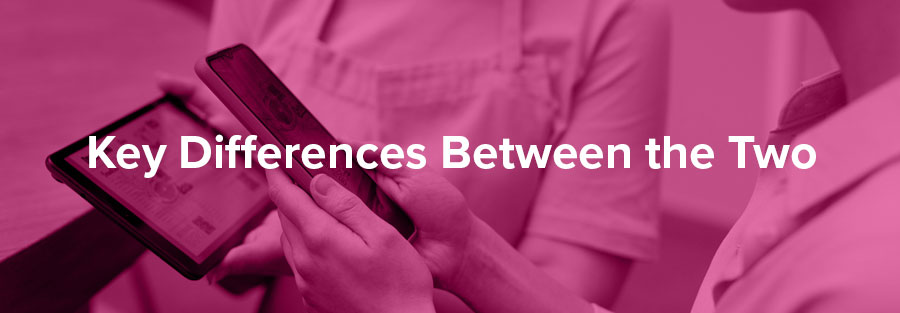To reduce costs, gain a competitive edge, and optimize operations, foodservice operators often turn to either a Group Purchasing Organization (GPO) or a Buying Group. These entities share a common goal: helping businesses harness their collective buying power to secure cost savings and a range of other benefits when procuring goods and services.
Let’s dive deeper into the specifics of each choice to help you understand which option aligns better with your procurement needs and objectives:

What is a Group Purchasing Organization or GPO?
A Group Purchasing Organization (GPO) is an entity that negotiates contracts with suppliers on behalf of its member businesses. These contracts typically cover a wide range of products and services, such as medical supplies, office equipment, or industrial materials.

What is a Buying Group?
A Buying Group, also known as a Purchasing Cooperative or a Cooperative Buying Group, is an organization formed by independent businesses or retailers with similar interests, typically within the same industry or niche, to pool their resources and make joint purchases.

GPO vs Buying Groups
Here are some key differences between the two:
Structure and Organization
- Buying Group: A buying group is typically an informal arrangement where a group of businesses or individuals come together voluntarily to make collective purchases. They may have a shared interest or industry, but the organization is often less formal, and members retain more control over their purchasing decisions.
- Group Purchasing Organization (GPO): A GPO is a more structured and formal entity. It is often a legally registered organization that exists specifically for the purpose of negotiating and managing group purchasing contracts on behalf of its members. GPOs usually have a formal governance structure and may charge membership fees.
Membership
- Buying Group: Membership in a buying group is usually open to a wide range of businesses or individuals who want to join and benefit from collective buying power. Membership criteria may be less stringent.
- GPO: GPOs often have specific criteria for membership, such as industry type or size of the organization. They may target a more niche or specialized group of members.
Negotiation and Contracts
- Buying Group: In a buying group, individual members often have more control over negotiations with suppliers and may have the flexibility to opt in or out of specific contracts negotiated by the group.
- GPO: GPOs take on the responsibility of negotiating contracts with suppliers on behalf of their members. Members typically have less direct involvement in the negotiation process but benefit from the pre-negotiated terms.
Benefits
- Buying Group: Members of buying groups often join for the collective buying power and potential cost savings. However, they may have to invest more time and effort in coordinating purchases and managing supplier relationships.
- GPO: GPOs offer the advantage of centralized procurement and professional contract negotiation. Members can often access a wider range of suppliers and enjoy more streamlined procurement processes, potentially leading to greater cost savings.
Sectors
- Buying Group: Buying groups can exist in various sectors and industries, ranging from foodservice, retail, and healthcare.
- GPO: GPOs are often industry-specific and cater to particular sectors, such as hospitality and healthcare. They may have specialized knowledge and expertise in the specific needs of their industry.
The main differences between a buying group and a group purchasing organization lie in their formal structure, membership criteria, negotiation processes, and sector focus. Buying groups are typically more informal and offer members more control, while GPOs are formal entities with specialized industry focus and centralized procurement management.
How can Buyers Edge Platform Help Your Business
Buyers Edge Platform is a group purchasing organization (GPO) that offers a range of services and solutions to help foodservice operators reduce costs and streamline operations.
- Purchasing Power: Buyers Edge Platform leverages the collective purchasing power of its members to negotiate better deals and discounts with suppliers. Foodservice operators can benefit from lower prices on a wide range of products, including food, beverages, equipment, and supplies.
- Supplier Relationships: Buyers Edge Platform has established relationships with a network of trusted suppliers. This means that members can access a diverse range of high-quality products from reputable suppliers. These relationships also allow for better communication and problem resolution in case issues arise.
- Cost Savings: By accessing negotiated pricing and discounts, foodservice operators can significantly reduce their procurement costs. This is especially important in the foodservice industry, where margins can be tight, and any savings can directly impact the bottom line.
- Streamlined Procurement: Buyers Edge Platform provides a centralized platform for procurement. This streamlines the purchasing process, making it more efficient and less time-consuming. Operators can easily browse products, place orders, and track deliveries through a single platform.
- Data Analytics: Buyers Edge Platform often offers data analytics and reporting tools to help operators analyze their spending patterns. This data-driven approach enables operators to make informed decisions about their procurement strategies, identify areas for cost reduction, and optimize their purchasing processes.
- Customized Solutions: GPOs like Buyers Edge Platform tailor their services to the specific needs of their members. They can work with foodservice operators to develop customized procurement strategies that align with their business goals and objectives.
- Compliance and Quality Assurance: GPOs often have rigorous supplier vetting processes to ensure product quality and compliance with industry standards. This helps foodservice operators maintain high standards in their operations and reduces the risk of product recalls or quality issues.
By leveraging the collective purchasing power, accessing supplier relationships, and utilizing data-driven insights, operators can optimize their procurement processes and achieve significant cost savings.
